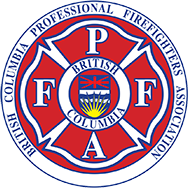Burn Awareness Week Stats and Tips
Date: February 6 - 12, 2022
Theme: Burning Issues in the Kitchen!
BC Stats from the Office of the Fire Commissioner:
*These statistics are based on fire incidents reported to the OFC and are subject to change as fire reports continue to be submitted after the date of this publication.
Cooking equipment is the third leading cause of structure fires in BC
2021 Stats:
690 fires caused by cooking equipment out of a total number of 3,287 fires in BC.
Three people died from these fires - the highest number in the last 10 years ○ 31 people were injured
$56,684,290 in damage (both contents and property loss)
63 fires in 2021 were caused by people being distracted or preoccupied
Causes:
Fire on the stovetop burner area involving a fire in a pan or wok
Fire on the stovetop burner area involving a fire in a pot used as a deep fryer 3. Fire on a stovetop burner area involving other circumstances
Fire-caused deaths in BC are on the rise:
In 2021 there were 45 deaths and 162 injuries due to fires in BC
An additional 14 deaths that are pending further investigation, bringing the potential total fire deaths in British Columbia in 2021 to 59
In 2020 there were 52 fire-caused deaths
In 2019 there were 27 fire-caused deaths
Most deaths and injuries caused by fire occur in people’s private homes
Cooking Tips:
A leading cause of home fires is unattended cooking - stay in the kitchen!
Have a “kid and pet free zone” of one metre around the stove and areas where hot food or drinks are prepared or carried.
Watch what you are cooking. Fires start when the heat is too high. If you see any smoke or the grease starts to boil, turn the burner off.
Make sure you are awake and alert while cooking. Alcohol and some drugs can make you sleepy.
Wear short, close-fitting or tightly rolled sleeves when cooking. Loose clothing can dangle onto stove burners and can catch fire if it comes in contact with a gas flame or electric burner.
Turn pot handles toward the back of the stove so no one can bump them or pull them over.
Keep things that can catch fire, like oven mitts, wooden utensils, food packaging, towels, away from the stove.
If you have a small grease or oven cooking fire:
On the stove top, smother the flames by sliding a lid over the pan and turning off the burner. Leave the pan covered until it is completely cooled.
Never pour water or use a fire extinguisher on a cooking pan grease fire!
For an oven fire, turn off the heat and keep the door closed. After a fire, the oven should be checked and/or serviced before being used again.
If you have any doubt, get out!
When you leave, close the door behind you to help contain the fire.
Call 911 or your local emergency number from outside your home.
If a Burn Happens:
Cool the skin immediately using any water available. The water should be cool, not cold, and never use ice.
Cool the burn for at least a minute, even if there are blisters.
Never put butter or oil on a burn! This old wives’ tale will actually slow the release of heat from the skin and cause more damage.
For smaller burns, use a band aid. For larger burns, cover the burn and seek medical attention. When in doubt, go to the hospital!
Social Media Toolkit
The Office of the Fire Commissioner has created this toolkit with messaging and graphics: Download tips and stats from the Burn Fund and the BC Office of the Fire Commissioner here:

